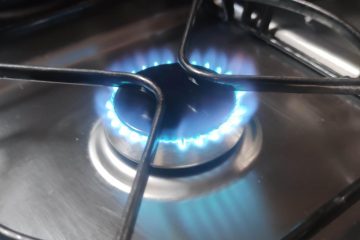Fonte: Argus media
Brazil’s LPG appetite bucked the downturn in demand for other fuels in 2020, benefiting from more at-home cooking because of the Covid-19 pandemic. The sector is now preparing for significant changes as state-controlled Petrobras ceases to be the country’s main supplier, the president of Brazil LPG distributors’ association (Sindigas) Sergio Bandeira de Mello told Argus.
What is the LPG demand outlook in 2021, following strong growth in 2020?
It was a challenging year for everyone in 2020, but the LPG sector was able to respond to changes in demand caused by the pandemic. Brazil’s LPG demand increased by over 3pc in 2020 because of the jump in residential demand as more people were eating at home. Demand for 13kg cylinders, which are used for cooking gas, was up by over 5pc, which helped offset a decline in demand from industry and from the services sector, which fell by 2.3pc. Back in August, the sector was projecting growth of 1-2pc for this year, but these numbers have been revised because residential demand is expected to remain strong as many people are expected to continue to work from their home offices in the future.
Sindigas has been working with the hydrocarbons regulator (ANP) to lift some restrictions on LPG use in Brazil. Has this process advanced?
The ANP was expected to analyze the restrictions on LPG last August, but that process was delayed because of the pandemic. We now expect the ANP to begin a public consultation process about this issue by May. We are pushing for all restrictions to be lifted. Areas with the most potential include engines and boilers. This would allow LPG to be used in back-up power generation. It is a fuel that can be safely stored for long periods of time and is ideal for this use. There is also potential for other sectors, such as agribusiness. But Sindigas will not be pushing for expansion into autogas. Although it has low emissions, we think that other renewables are more suitable for Brazil and the autogas segment typically needs tax breaks, which we are not asking for.
The industry has previously expressed concerns about pricing. Have these issues been resolved?
In our view, Petrobras is no longer being used as an instrument of the government to control inflation. Pricing is much more transparent and it is increasingly clear that competition is having a positive impact on pricing. But Brazil is still struggling with the fluctuation of LPG prices, which were subsidized for decades. Brazil had politicized fuel pricing and it will take time for the population to adjust to a market-based model. Brazil is one of the few countries where the LPG price is an issue for the president.
How will the sale of Petrobras’ refineries impact the LPG market?
There will be many new challenges with the refinery sales. Prices are going to be set by the market and the government will have less room to interfere in the market. For Brazilian LPG distributors, this will translate into significant changes in acquiring gas. Right now, all distributors buy gas from Petrobras under the same terms. With more players entering refining, this will no longer be the case, which will be a significant change for the sector.
Will the new gas law have a significant impact on LPG?
If the gas law is passed, it will increase natural gas production, which will also have an impact on LPG output. The government is currently projecting that Brazil will be self-sufficient in LPG by 2029 or 2030, as natural gas production increases. This means that Brazil will no longer need to import LPG. Currently, Brazil imports around 25pc of local consumption. If government projections are correct, we will have excess supply in every region of the country except the center-west and south. Without a regulatory framework to increase demand, Brazil will end up exporting LPG.
Will LPG see more competition for natural gas with the new law?
We see LPG and natural gas as complimentary. As LPG demand expands in certain areas, this can eventually justify investments in the expansion of gas. This is another reason why it is important to lift the LPG use restrictions, because it will help develop new gas markets too. The greatest challenge will be to provide a market for all of the gas that will eventually be produced in Brazil.


